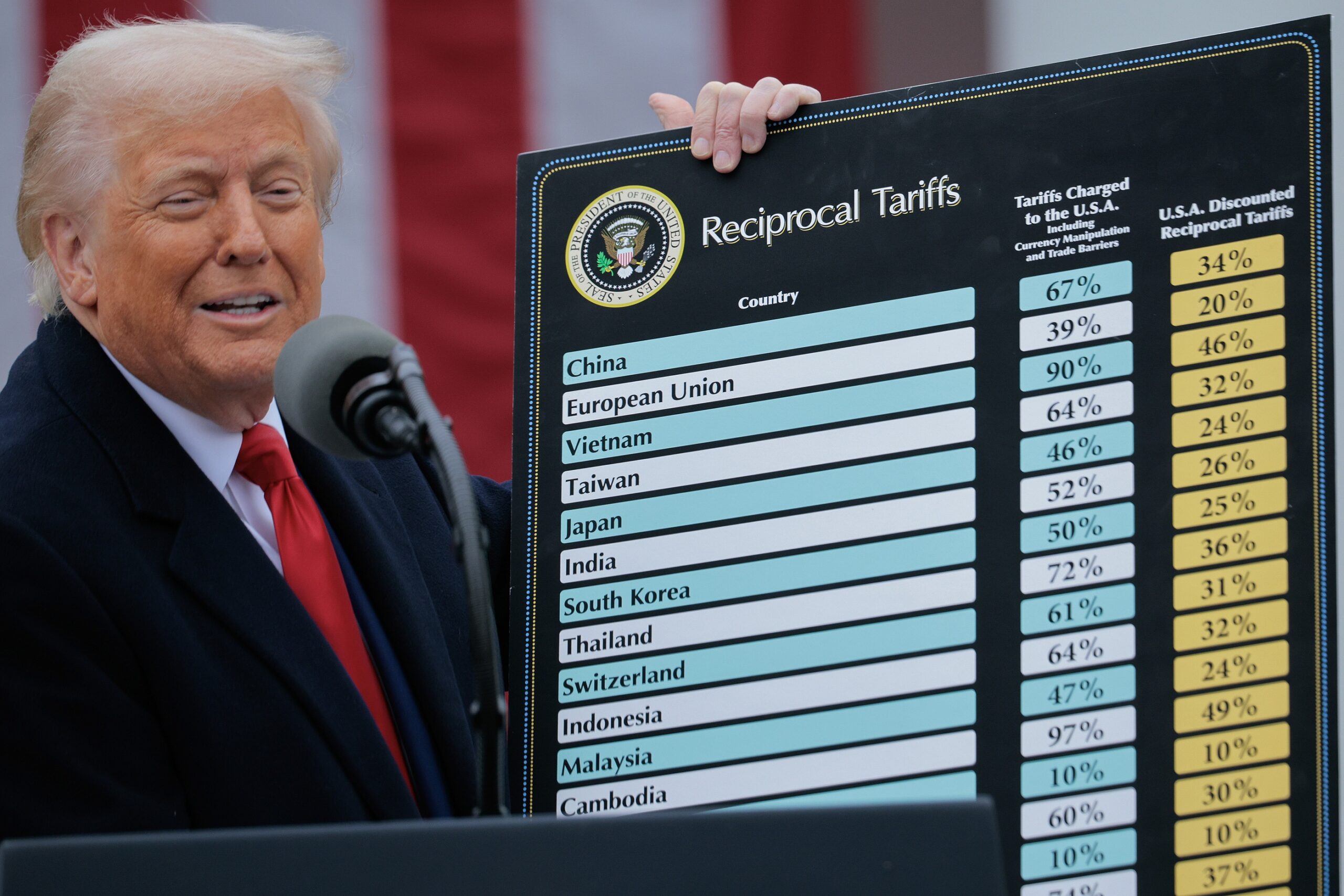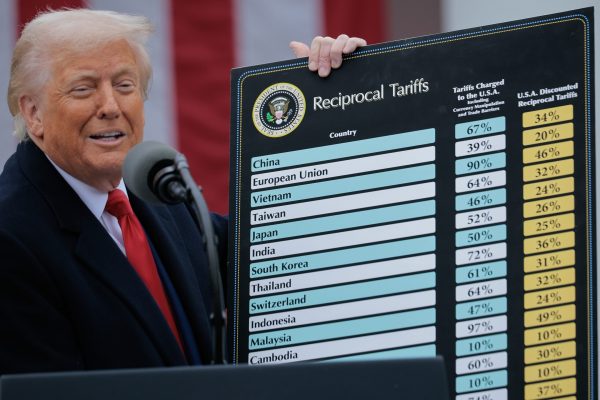The Nigerian economy, already reeling from the impact of sky-high inflation and unstable exchange rates, may be about to face more challenges. The fallout from US President Donald Trump’s tariffs—especially the ones that directly apply to Nigeria and other countries –could be significant.
Read more about Business
Most Nigerians will see America’s tariffs as just another news story. Many won’t give it a second thought. In reality, the ongoing global trade war, which Nigeria has now been drawn into, could affect such things as the value of the naira versus the dollar, and the ability of the government to meet its obligations (e.g. pay public sector workers, for instance).
What follows is an exploration of the United States’ new tariff regime, why it was introduced, and how it could impact Nigeria.
Why the Trump Administration has Imposed Tariffs
On Wednesday, April 2, US President Donald Trump announced that his country would impose tariffs on its global trade partners. A 10% base tariff will apply to all countries involved, and an extra fee for nations that had previously placed heavy tariffs on US goods being imported into their countries.
So, while the UK, Singapore, Saudi Arabia and Argentina only receive the 10% base tariff, others like China, Vietnam, and Cambodia have been hit with tariffs of between 32% and 49%.
Meanwhile, Nigeria’s exports to the United States will now face a 14% tariff, meaning that Americans who choose to buy Made in Nigeria products will have to pay 14% more for them.
Trump officials say that these tariffs are, in fact, “reciprocal”. That is, they are a response to what the administration sees as unfair taxes levied on American goods by countries all over the world. They explain that these countries have exacted more for US products than the US has demanded for theirs.
This, they insist, hands such countries an unfair advantage, and skews the balance of trade negatively against the United States. A consequence of this has been that US exports have become expensive to consumers in other countries. American companies, seeking ways to remain competitive in foreign markets, have therefore moved some of their manufacturing to those countries, resulting in a loss of job opportunities for people in the United States.
Trump’s aim to “Make America Great Again” partly involves correcting this perceived imbalance. His intention is to take some of that manufacturing back home, and prevent more jobs from leaving the shores of the US.
How Trump’s Tariffs Could Affect Nigeria
While some may sympathize with the arguments of the Trump administration, its tariffs will send shockwaves across the global economy. Nigeria is unlikely to be spared by this shake-up of international trade.
Here are a number of ways those tariffs could affect Nigeria’s economy.
Sign up for the Connect Nigeria daily newsletter
Our Exports May Shrink
The quickest effect of the new tariffs on Nigeria could be that exports to the United States will become more expensive to buyers in that country.
According to the United Nations COMTRADE database, Nigeria’s exports to the US in 2024 were worth $5.84 billion. The NBS says that in Q2 of that year, 92.3% of the country’s exports to the US were oil products.
Nigeria’s oil exports to the United States have been declining in recent times. Trump’s tariffs are almost certain to speed up that trend, as American buyers of Nigeria’s bonny light crude turn to domestic suppliers. This will result in a loss of revenue for the Nigerian government.
Imports Could Become More Expensive
The current US administration says that Nigeria imposes 27% tariffs on American exports to Nigeria. This has made US goods relatively expensive for Nigerian consumers. The Federal Government’s tariffs on those goods were designed to discourage foreign imports.
Nigeria hasn’t announced retaliatory taxes, but our imports could become more expensive due to other causes. For example, imported electronics produced with components on which high tariffs have been applied will become costlier. Even if those tariffs weren’t imposed on Nigeria, some of that cost may be passed on to Nigerian consumers through importation.
A Weaker Naira
This is perhaps the most dreaded consequence of Trump’s tariffs for Nigeria. And it’s tied to a likely dip in oil prices.
Oil market analysts warn that the tariffs may slow down international economic activity and lead to a fall in global demand for oil products. That would, in turn, force oil prices downward. Indeed, the price of crude on international markets has sunk in the wake of Wednesday’s announcement. However, it’s unlikely that the full effects of the tariffs have been priced in yet.
By one measure (the NBS), Nigeria gathered more than 70% of its foreign exchange earnings in the first 9 months of 2024 from crude oil exports. Because foreign exchange inflows determine the exchange rates of the naira against major foreign currencies, a sharp fall in oil prices will cut our FOREX earnings, and therefore weaken the naira.
The outworking of this will include more costly raw material and machinery imports, higher prices for the local goods that can’t be made without them. Things like cars, building materials, clothing, mobile phones, laptops, furniture and refrigerators may be pricier.
Lower Foreign Direct Investment
The uncertainty of the new global economic climate could force international investors to seek safe havens and avoid emerging markets like Nigeria, which may be significantly affected by the tariffs.
Instead of pouring money into the Nigerian economy, these investors will likely buy into safety. Their preference would be to stay in established markets or hold more reliable assets.
Nigeria has seen several medium and large-scale corporate organizations leave its shores in the last few years, owing to difficult operating conditions. Any large increase in the cost of doing business may force even more of them to move out, and deter others from investing here.
Register to attend the CN Business Mixer
Final Words
It’s hard to predict precisely how Trump’s tariffs will impact Nigeria. But we can at least conceive of general effects, like the ones we outlined in this article. Hopefully, we can avoid the worst-case scenarios while stakeholders push for a resolution to the present global standoff.
Got a suggestion? Contact us: [email protected]


